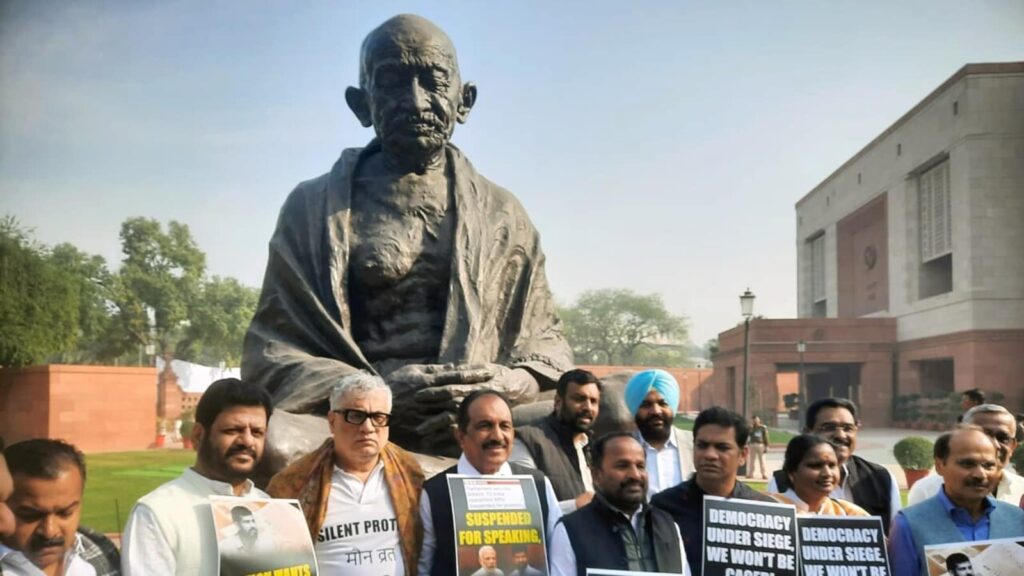It is unfortunate that a much-needed discussion on the security breach in Parliament has turned into an avoidable confrontation between the Treasury benches and the Opposition. On Thursday, 14 Opposition MPs — 13 from the Lok Sabha and one from the Rajya Sabha — were suspended for the remaining part of the Winter Session, following a ruckus over the demand for a statement from the Union home minister on Wednesday’s incident, when two young men evaded security to intrude into the Lok Sabha and hurled a canister with coloured smoke. The break-in called for an informed debate so that the security concerns of all members could be addressed. Instead, the government seems to have decided to confront the Opposition and force the expulsion of the vocal MPs. The action acquired a dark, comic edge when it came to light that one of the suspended MPs was not even in the House. This was blamed on a bureaucratic error, but such slippages will raise the question of whether the proper application of rules, conventions and context backs disciplinary steps. The episode may have served to further the Opposition’s anxiety that the House is being unfair to them.
Protests, within and outside Parliament, are a legitimate practice. The late BJP leader and one of the best parliamentarians the country has seen, Arun Jaitley used to argue that disruption of the House is a legitimate form of protest; he also cautioned that it is a weapon to be used in the rarest of rare cases. The logic in this argument is that in the event of a vote in the House, the government of the day could force its numerical majority and win. This is not to make a case for boorish or unruly behaviour in the House. However, the government should not view a vocal and aggressive Opposition in Parliament as a disruptive force that has to be silenced using all instruments. Since 2019, there have been so many instances of Opposition MPs being suspended from the House — sometimes for a short duration of the session, and even for the entire session. The rules provide for suspensions if the authority of the Chair of the House is challenged, but suspension for every act of defiance is an extreme step. Unfortunately, suspensions of MPs have come far too fast and too frequently for anyone’s comfort. This erodes a core value of parliamentary democracy, which is debate. Moreover, forcing MPs to stay away from the House is tantamount to robbing the voters they represent of their voice in Parliament. It could even be interpreted as intolerance, which shows the Chair and government in an unflattering light.
The onus is on both the government and the Opposition, but especially the former, to ensure the smooth functioning of Parliament. The floor managers of the government need to reach out to the Opposition and assure them of space and time in House business. This can happen only in a climate of mutual trust and bonhomie, which is absent today. For instance, the number of privilege cases filed by ruling party MPs against their colleagues in the Opposition has shot up in the past year. Parliamentary democracy does not begin and end with elections — it is a continuous process that carries on in the House and, in collaboration with the Opposition. The electorate takes a cue from Parliament: A House that functions in a healthy atmosphere of dialogue, dissent and debate sends out a positive message to the nation.
Continue reading with HT Premium Subscription
Daily E Paper I Premium Articles I Brunch E Magazine I Daily Infographics


